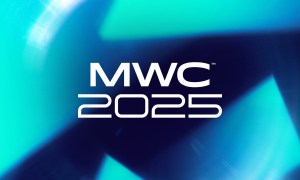
Following Sprint, Rogers, and Telenor, four new telecommunications providers will now support Google’s RCS Jibe platform: Vodafone Group, Globe Telecom, Orange, and Deutsche Telekom. To enforce a seamless experience on these networks, Google is also rebranding Messenger, the default texting application on some Android devices, to Android Messages.
RCS, or Rich Communication Services, is the follow-up to SMS and MMS. RCS lets users send higher-quality picture messages, participate in group chat, share their current location, and initiate video calls. It supports read receipts, typing indicators, and can even allow text participants to share media and other information while in a telephone conversation. It essentially brings texting up to speed with features available on instant messaging services like Facebook Messenger.
RCS implementation requires carrier support, but while carriers have been using the platform for some time now, they have not adhered to the universal standard. Google’s Jibe service aligns with the universal RCS profile, and it provides cloud and hub services to make it easier for carriers to adopt and roll out.
Orange S.A. has around 263 million customers worldwide, and Globe has about 48.4 million. Deutsche Telekom is the majority shareholder of T-Mobile, and also the parent company of numerous other telecommunications service providers. Vodafone also has a large presence, with networks in 26 countries.
T-Mobile has not officially announced support for RCS with Jibe yet, but the company’s CTO has said the “un-carrier” will support the platform some time this year.
Google’s says its partnership with these telecommunication providers represent more than a billion subscribers. There are 27 manufacturers and carriers in total launching RCS with Google.
“These partners have also committed to interconnecting through the Jibe RCS hub so that RCS messages are delivered to subscribers across carrier networks, helping RCS messaging become truly universal,” writes Amir Sarhangi, head of RCS at Google.
Android Messages
As Android owners may know, there has never been a universal texting application on Android devices. Google Messenger, which supports SMS, MMS, and RCS, comes pre-installed on many Android smartphones, but there’s usually a texting app from the carrier or manufacturer present as well, like AT&T Messages and Samsung Messages.

To unify this experience, Google is rebranding Messenger to Android Messages. The tech giant said these telecom partners will enable it as the default texting application to bring RCS to subscribers.
To make sure Android devices can enjoy all the features RCS offers, Google is also working with the following manufacturers to make Android Messages the default messaging app on their smartphones: LG, Motorola, Sony, HTC, ZTE, Micromax, Nokia, Archos, BQ, Cherry Mobile, Condor, Fly, General Mobile, Lanix, LeEco, Lava, Kyocera, MyPhone, QMobile, Symphony, and Wiko. More partners will be added in the future, and Android Messages will be the default texting app on Google’s Pixel and Android One devices as well.
RCS for businesses

Businesses have been using SMS to reach out to customers for quite some time. For example, your airline may send you a text with flight information, or a food service like Seamless may message you that your food’s on the way. Customers usually can’t do much else with these texts, and Google’s not giving up the chance to get these businesses to upgrade the messaging experience.
The company is launching an Early Access Program for businesses to learn and build with Jibe, so that their texts can offer richer information to customers as more and more carriers adopt the universal RCS profile.
“A message from your airline reminding you to check in for a flight can now take advantage of rich media and interactivity to provide a full check-in experience, complete with boarding pass, visual flight updates, and terminal maps on demand, all directly within the messaging experience,” Sarhangi said. “Businesses can also have a branded messaging experience with information about the business and the ability to share content like images, video clips, and GIFs.”
The following companies and messaging partners will be the first to partake in Google’s Early Access Program: Virgin Trains, Walgreens, BlaBlaCar, Gamestop, G2A.com, IHG, LexisNexis Risk Solutions, Papa Murphy’s, Philips, Sky, Sonic Drive-In, Time Inc., 3C, CLX Communications, Experian Marketing Services, MessageBird, mGage, Mobivity, Movile, Vonage through Nexmo API Platform, OpenMarket, and Waterfall.
Google will be showing off RCS-enabled business messaging at Mobile World Congress next week.